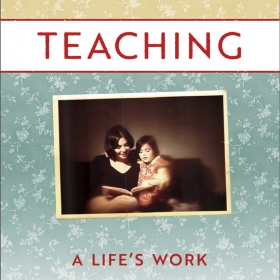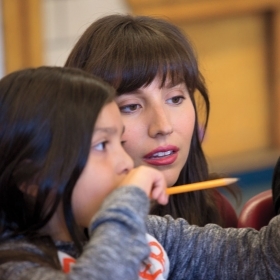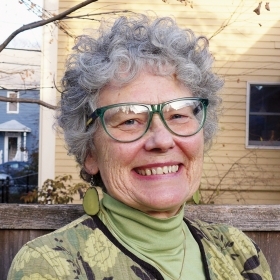In their book Teaching: A Life’s Work, educators Alicia Nieto López ’91 and her mother, Sonia Nieto, articulate what motivates them as educators, inspiring their readers to reflect on the same.

Sonia Nieto and Alicia Nieto López ’91
Teaching: A Life’s Work—A Mother-Daughter Dialogue
Teachers College Press
171 pages; $29.99
In their book Teaching: A Life’s Work, educators Alicia Nieto López ’91 and her mother, Sonia Nieto, suggest that if a teacher wants to make magic in the classroom, she must first ask herself some questions: “[We] … need to learn who we are, as both human beings and teachers, that is, we need to know what we stand for, what we value and believe, our blind spots, our talents, and our shortcomings.” In fact, the very act of writing this book appears to have given Nieto and López the opportunity to articulate exactly who they are and what motivates them as educators, inspiring their readers to reflect on the same.
With more than three-quarters of a century of teaching experience between them, Nieto, a professor of education, and López, a middle- and high-school language teacher, engage each other in a conversation about education that reads like two veteran teachers showering a novice in wisdom before the first day on the job. Tracing the development of their careers and what they learned along the way, their book is a cross between a memoir and a letter to a young teacher who had asked, “OK, I’ve taken all of the education classes, but tell me, what really matters when I get in there? What makes a good teacher great?”
Nieto and López characterize teaching as an act of love. “Not a sentimental emotion,” they insist, “love is really about caring for students’ lives, having respect for them, and believing in them. … Love is also about forgiveness. Teachers learn to forgive and forget quickly.” The authors argue that the quality of the relationships teachers build with students and their parents, aswell as their own teaching mentors, will determine success.
The book itself seems born out of the familial love between the authors. A running motif, for example, is the connection between teaching and parenting: “Teaching cannot be separated from parenting … . Being a parent frequently means making it up as you go along, compromising, rethinking your stance all the time. Sometimes you get it right, sometimes you don’t.”
What most impressed me about this book is the authors’ impassioned invitation to reframe the content that is handed down, even mandated, for teachers to teach. Both pioneers of “culturally responsive pedagogy,” Nieto and López suggest that good teaching stems from the ability to continually question and revise the established curriculum. “[Caring] about students can sometimes mean not only rejecting the standard curriculum but also having to challenge authority.” The authors describe what it takes to become what they call “a socio-cultural mediator,” a kind of curriculum vigilante who makes room for the specific cultural identities of her students. Teachers, they suggest, must show that they are continually updating what they’re teaching and how, so that their students understand that they, too, have the power to change the story they are told about who they are and where they belong in society.
Yet questioning the status quo requires reserves of energy and a continual desire to learn on the teacher’s part: “One needs to become a sponge, a scavenger, a daredevil, an experimenter, a cultivator of knowledge, a subversive … .” To this end, no matter how experienced teachers may become, Nieto and López suggest that they preserve some of the eagerness, if not the nervous energy and self-doubt, of the first year in the classroom. “Beginning is always the hardest,” they write, “but [teaching] should never become too easy.”
Boncher teaches ninth-grade Spanish and 11th-grade English at Montclair Kimberley Academy in Montclair, N.J.


